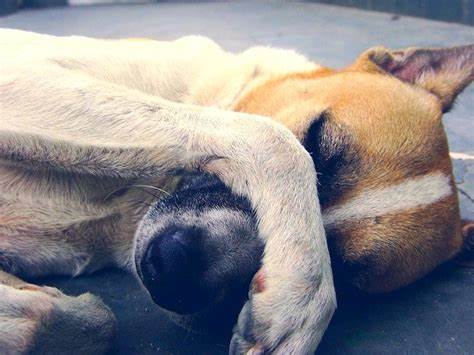Rescue Tails / WHEN DOGS BITE Part 2
Last week our officers responded to seven dog bite cases, one for every day of the week! For our community, that’s a lot of tooth action! We want to see those statistics go down. Our last column focused on factors leading to dog bites and fights. This week we’ll share what happens when a bite occurs since the process is often misunderstood, and also offer suggestions to prevent dog bites.
Florida law regarding dog bites comes out of a concern for public health. The law states that if a dog bites and breaks skin on a human or other animal, that dog must be quarantined for ten days and monitored for signs of rabies, a disease which is transmitted through the saliva of an infected animal. When animal control receives a dog bite call, they speak with the victim and obtain details of the incident. Depending on the circumstances, if a quarantine is required it often takes place in an animal control facility where the animal can be observed and not come in direct contact with the public or other animals. At the end of the quarantine period, provided the dog is symptom free, the dog is released from quarantine and returned to the owner if the owner chooses that option.
There are ways we can reduce the need for this emotional and stressful process that affects both the bite victim and the dog’s family.
LEASH YOUR DOG!! There are leash laws and even the best trained dog can have an “animal moment” when the training goes out the window and the unexpected happens.
SOCIALIZE YOUR PUPPY! Under-socialized or poorly socialized dogs are more likely to show fear-based aggression as they mature. Socialization recommendations have dramatically changed in recent years. Learn more about best practices: https://www.youtube.com/watch?
BECOME FLUENT IN CANINE BODY LANGUAGE: https://www.youtube.com/watch?
AVOID ON-LEASH GREETINGS WITH UNKOWN DOGS: One bad moment can be life-changing and no matter how friendly someone says their dog is, best not to take a chance. Small dogs are especially at risk.
ALLOW YOUR DOG TO DECIDE: No one likes space invaders, including dogs. Allow them to “close the distance” when greeting people and other animals. If they choose not to approach someone, they have said NO to the interaction. Safety will be better maintained if we respect that communication.
AVOID HIGH AROUSAL DOOR GREETINGS: The risk of a bite can be reduced when visitors arrive by putting dogs away or behind a baby gate until the initial excitement diminishes.
PREVENT ESCAPES FROM HOUSE and YARD: Utilize baby gates/barriers to prevent front door escapes. Prevent yard escapes by installing springs and self-closing latches on gates. Check and reinforce insecure fencing. Loose dogs play a major role in dog bites, fights, and worse!
We can go a long way towards creating a safer community with better management, education, and common sense. Let’s do it for dogs AND people!
[livemarket market_name="KONK Life LiveMarket" limit=3 category=“” show_signup=0 show_more=0]




No Comment